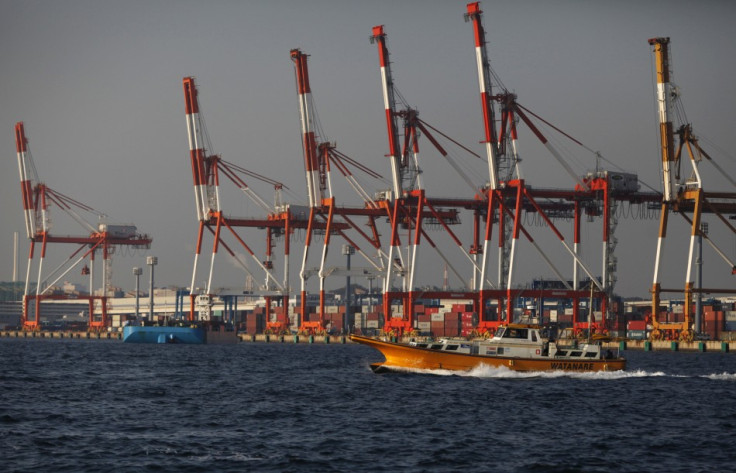Baltic Dry Index Plunges Most in Four Years on Global Trade Concerns

One of the most closely watched indicators of global economic activity, the Baltic Dry Index of shipping costs, fell the most since 2008 following weak trade data from China and the United States.
The benchmark index, maintained by the London-based Baltic Exchange to track the daily freight market prices for dry bulk transport, fell 8.2 percent to 826 following a near 4 percent decline Tuesday. The index has fallen more than 48 percent so far this year.
The decline will add an interesting dimension to Wednesday's statement from Ben Bernanke and the US Federal Reserve which maintained its so-called Maturity Extension Program that has been reinvesting around $45bn (£27.8bn/€34.5bn) of maturing debt and new bond purchases back into the economy and pledged to keep its benchmark lending rate near zero until the US unemployment rate falls to 6.5 percent.
The Fed's Open Markets Committee also lowered its 2013 growth forecasts for the US economy to between 2.3 percent and 3 percent from its September assessment of between 2.5 percent and 3 percent.
The US economy grew at an annual pace of 2.7 percent in the three months ending in September but is expected to slow sharply in the final quarter and into the first half of next year as investor concern about the impending "fiscal cliff" and a protracted debate over the nation's $15tn debt ceiling hold back investment.
The US reported a wider-than-expected $42.2bn trade deficit for the month of October, according to Commerce Department figures, a 4.9 percent increase from the previous month as imports fell to their lowest level in at least 18 months. Exports, one of the most significant contributors to US GDP since the financial crisis, fell 3.6 percent to $180.5bn - the biggest drop in percentage terms since 2009.
The US's trade deficit with China hit a record $29.06bn for the month.
A report on China's export growth for November from the country's customs office showed a meagre 2.9 percent advance, well below analsyts' expectations of 9 percent and less than a third of the pace of the 11.9 percent gain in October.
The Organisation for Economic Co-operation and Development, or OECD, lowered its growth forecast for the global economy last month and expects the euro zone to sink deeper into recession next year unless the region's leaders moderate their plans for deep government spending cuts.
The Paris-based OECD it expects the global economy to grow at a pace of 3.4 percent next year, down from its earlier assessment of a 4.2 percent advance. The euro zone, the OECD said in its Economic Outlook, will likely drift into a full-year recession and contract by around 0.1 percent.
"The world economy is far from being out of the woods," OECD Secretary-General Angel Gurría said. "The U.S. 'fiscal cliff,' if it materializes, could tip an already weak economy into recession, while failure to solve the euro area crisis could lead to a major financial shock and global downturn. Governments must act decisively, using all the tools at their disposal to turn confidence around and boost growth and jobs in the United States, in Europe and elsewhere."
© Copyright IBTimes 2025. All rights reserved.





















